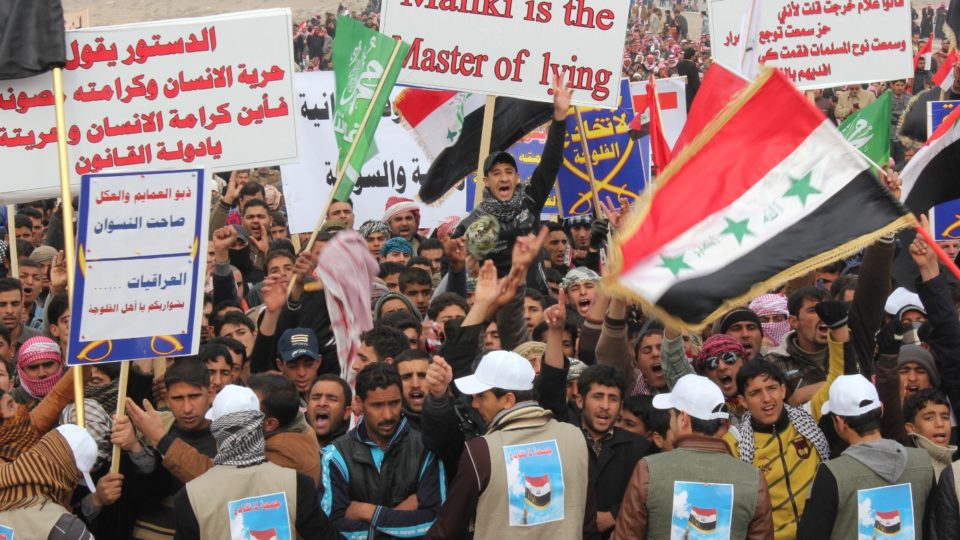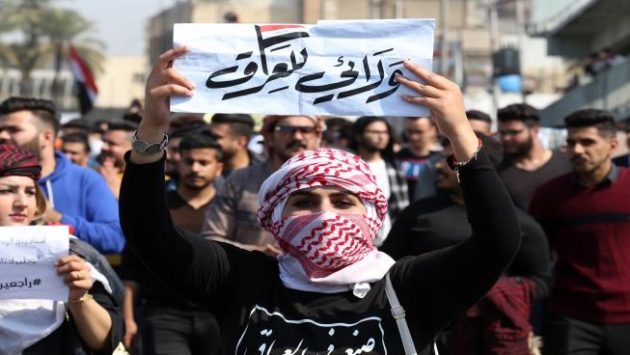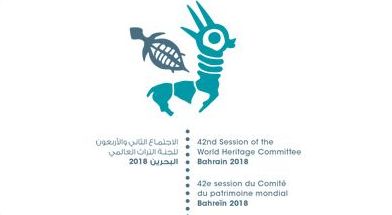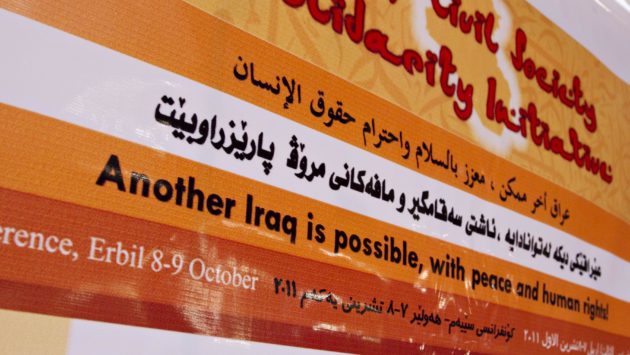ICSSI Supports Popular Protests in Iraq Demanding an End to Corruption, Sectarian Conflict and Injustice
ICSSI Statement of the protests follows. Read also Iraqi voices on the protests:
ICSSI Supports Popular Protests in Iraq
Demanding an End to Corruption, Sectarian Conflict and Injustice
Across Iraq, for more than four weeks, protesters have taken to the streets and public squares demanding an end to corruption and sectarianism, and provision of essential services, along with mounting calls for comprehensive reform of the judicial system. While some news reports attempt to downplay the significance of the protests, labeling them as Sunni opposition to al-Maliki’s Shiite government, the protesters’ demands have widespread support in many places and from Iraqi citizens of many ethnic and sectarian backgrounds. As the demonstrations have grown and spread, so has a spirit of national unity. The Iraqi Civil Society Solidarity Initiative [ICSSI] supports all the demonstrators who are working to build an Iraq free from corruption, ethnic and sectarian conflict, and injustice. In all cases, freedom of expression and the freedom to organize peaceful demonstrations are human rights that must be guaranteed.
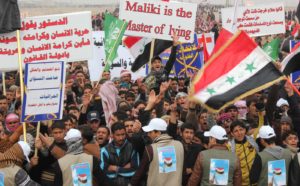
The protesters have made 13 demands. Three explicitly reject sectarianism, calling instead for an end to agitating divisions and hostilities among religious and ethnic groups, the opportunity to work based upon professional qualifications (not quotas), and return of religious properties to their rightful owners. The protesters are also asking the UN to conduct a census in Iraq, which is essential for assessing people’s needs for crucial services – water, electricity, schools and healthcare. Building upon this demand, the protesters are calling upon the government to finally provide these services, especially in areas that have so far been neglected by the state. Widely heard from demonstrators in all parts of the nation – from Wasit in the east, to Ramadi in the west, to Mosul in the north – are demands for an end to the administrative, legal, and financial corruption that has discredited government at all levels.
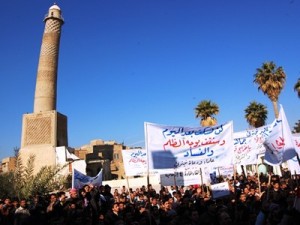
The protesters’ seven remaining demands all stem from judicial abuses that have multiplied as a result of the Justice and Accountability Law and Iraq’s anti-terrorism law, especially Clause 4, which have be used to target political dissidents. Protesters are demanding repeal of these laws, the immediate release of those who have been unjustly detained, approval of an amnesty law for innocent detainees and the cancellation of all unfair rulings against them. They are also seeking a halt to the formation of new Iraqi military commands in the governorates that are managed by al-Maliki’s office and make arrests based upon information from his supporters in Baghdad. In addition, protesters want an end to all house raids carried out on the basis of information obtained from secret informers and without legal search warrants. In light of the terrific repression that dissidents face today in Iraq, protesters are also demanding an end to use of the death penalty. Finally, the demonstrators are outraged by the treatment that detainees, especially in police custody and on military bases, have experienced. Torture is widespread. Women prisoners have been raped. Protesters are insisting that all government officials and members of the army or security units who committed crimes against detainees must be held accountable. Some Iraqis are still debating how far judicial reform should go; many continue to believe the government propaganda that the Justice and Accountability Law and the anti-terrorism law are necessary to keep Iraq safe. But as the crackdown on dissidents and protesters escalates, more and more people are questioning the government’s practices. Members of the ICSSI hope that these ongoing debates about the system of justice will lead to the dialogue and reforms that are needed to build a society that serves the needs and interests of all Iraqis. The Iraqi Civil Society Solidarity Initiative (ICSSI) Website : http://www.iraqicivilsociety.org Social network http://icssi08.ning.com/ Email: icssi.project@gmail.com

